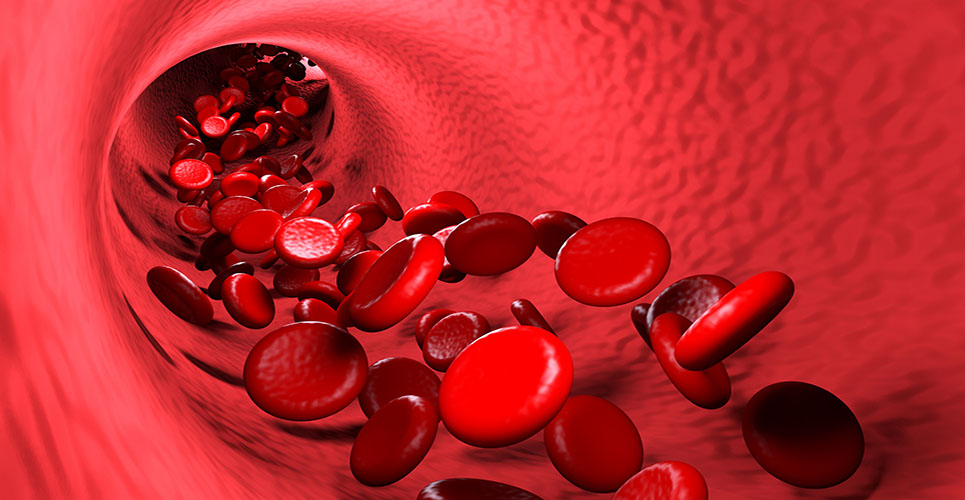Janssen-Cilag International NV (Janssen) announced that the European Commission (EC) has approved IMBRUVICA® (ibrutinib) for the treatment of adult patients with previously untreated chronic lymphocytic leukaemia (CLL).1 This broadens the indication beyond the initial CLL approval by the EC in October 2014. Ibrutinib is now approved for all patients with CLL, expanding the number of patients who may benefit from this treatment. The expanded ibrutinib indication is based on data from the Phase III, randomised, open-label RESONATE™-2 trial, as published in The New England Journal of Medicine (NEJM) in 2015.
“Ibrutinib has shown remarkable improvements in overall survival, progression-free survival and response rates compared with chlorambucil,” said Professor Paolo Ghia, Associate Professor of Internal Medicine at Università Vita-Salute San Raffaele in Milan, Italy. “The RESONATE™-2 data indicate that ibrutinib can provide a much-needed first line treatment alternative for many patients.”
Results from the RESONATE™-2 study showed that ibrutinib significantly prolonged overall survival (OS) (HR=0.16, 95% CI 0.05 to 0.56; P=0.001), with 98% of patients still alive after two years, compared to 85% for patients randomised to the chlorambucil arm.2 The median progression-free survival (PFS) was not reached for patients receiving ibrutinib versus 18.9 months for those in the chlorambucil arm, representing a statistically significant 84% reduction in the risk of death or progression in the ibrutinib arm (HR=0.16, 95% CI 0.09 to 0.28; P<0.001).2 The overall safety of ibrutinib in the treatment-naïve CLL patient population was consistent with previously reported studies.3 The most common adverse reactions (ARs) (≥20%) of any Grade in the RESONATE-2 trial for ibrutinib were diarrhoea (42%), fatigue (30%), cough (22%) and nausea (22%).2
“The availability of a targeted therapy as an initial treatment is a tremendous step forward for people affected by CLL and has been long-awaited by the CLL community,” said Nick York, patient advocate, CLL Advocates Network (CLLAN). “Many patients are considered unsuitable for the current first line standard of care so there is a real need for new, effective treatment options for these patients.”

Despite the availability of effective first line chemo-immunotherapy regimens for CLL, many patients, especially the elderly, cannot tolerate their adverse effects.3 CLL is generally a slow-growing blood cancer of the white blood cells.4 The prevalence rate of CLL in Europe among men and women is approximately 5.87 and 4.01 cases per 100,000 persons per year, respectively.5,6 CLL is predominantly a disease of the elderly, with a median age of 72 at diagnosis.7
“The body of clinical and real-world evidence in support of ibrutinib’s patient benefits continues to grow, and with this first line approval we are so pleased to be able to alter the treatment landscape and options for CLL patients,” said Jane Griffiths, Company Group Chairman, Janssen Europe, Middle East and Africa. “We now look forward to working with health authorities across the region to make ibrutinib available to patients in this indication as soon as possible.”
This latest EC approval follows the decision by the US Food and Drug Administration on 4 March 2016 to approve the expanded use of ibrutinib capsules for treatment-naïve patients with CLL.
Ibrutinib is co-developed by Cilag GmbH International, a member of the Janssen Pharmaceutical Companies, and Pharmacyclics LLC, an AbbVie company. Janssen affiliates market ibrutinib in EMEA (Europe, Middle East and Africa) as well as the rest of the world, except for the United States, where Janssen Biotech, Inc. and Pharmacyclics co-market it. Janssen and Pharmacyclics continue to support an extensive clinical development program for ibrutinib, including Phase III study commitments in multiple patient populations.
References
- Ibrutinib licence. European Commission.
- Burger JA et al. Ibrutinib vs chlorambucil in treatment-naïve chronic lymphocytic leukemia. N Engl J Med 2015;373:2425–37.
- O’Brien SM et al. Clinical roundtable monograph: unmet needs in the treatment of chronic lymphocytic leukemia: integrating a targeted approach. Clin Adv Hematol Oncol 2014;12(1Suppl.3):1–13.
- American Cancer Society. Chronic lymphocytic leukemia detailed guide. Available at: http://www.cancer.org/acs/groups/cid/documents/webcontent/003111-pdf.pdf Last accessed May 2016.
- Parker TL, Strout MP. Chronic lymphocytic leukemia: prognostic factors and impact on treatment. Discov Med. 2011;11(57):115–23.
- Sant M et al. Incidence of hematologic malignancies in Europe by morphologic subtype: results of the HAEMACARE project. Blood 2010;116:3724–34.
- Eichhorst B et al. Chronic lymphocytic leukemia: ESMO Clinical Practice Guidelines for diagnosis, treatment and follow-up. Ann Oncol 2011;22(Suppl.6):vi50–vi54.

